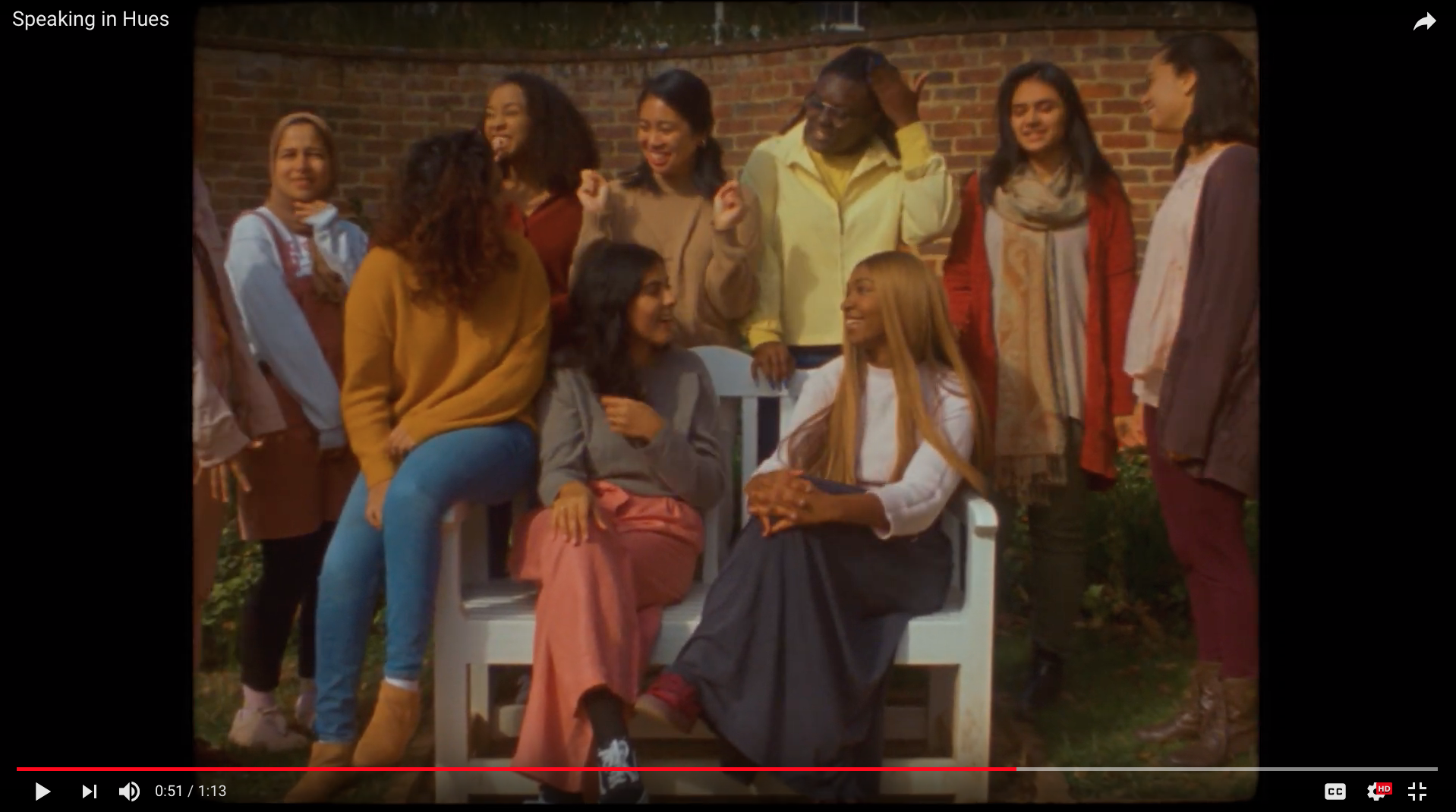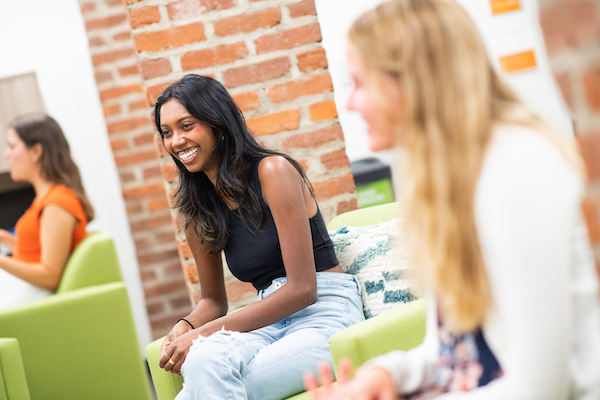
Marwah: Incredible growth happens when people are able to look beyond the box of themselves.
Lizz: And just get past that guilt. Like, ok, you feel guilty but what else?
Marwah: When I procrastinate an assignment, I feel guilty. But...
Lizz: But then it gets done. You move on. And great work gets done at the end of it. Let’s not procrastinate on liberation, though. Because we need that.
I can’t say it often enough: our students amaze me with their courage and insights. The exchange above comes from the premiere episode of Speaking in Hues, a new podcast co-created by our Engaged Scholarship and Iris teams here at the Women's Center. Ever since I listened to it, Marwah and Lizz’s words have been echoing in my thoughts.
The spring semester started off with a slate of powerful speakers during the MLK Community Celebration. In Roxane Gay's keynote talk, “The Age of Inelasticity,” she made us laugh, and then punctuated our laughter with transformative pearls of wisdom. She called out the current trend of becoming unyielding. If we’re not careful, she warns, we’ll break, calling us into the genuine kind of dialogue that develops out of engaged listening. This is a crucial insight – and an insight that raises a follow-up question: what practical steps can we take to hold to our integrity without becoming too unyielding, particularly in times as polarizing as these?
A few nights later, the Women’s Center hosted Morgan Jerkins for our annual MLK public talk. Reflecting on conversations about race, Morgan urged us to sit with the discomfort and dig into these hard conversations. An audience member posed a question during the Q&A, asking for advice on what responsibility white people hold for better understanding race issues. Morgan’s answer cut right to the heart of the ways we segregate and isolate ourselves: Look at your circle, she answered. How diverse is it? what’s the last book you read by a black author or film you saw with a predominantly black cast?
Last spring, a student shared with me an unflinching look at the lack of diversity in her course syllabi, particularly one literature class that had a single week for black authors. She wanted advice, and the old UVA chestnut of student self-governance (and its typical form of suggesting that students advocate for what they need) seemed insufficient in the face of her incisive assessment of the gaps in her education. Those of us in professional positions, whether faculty or staff, need to shoulder our share of the responsibility for the strength of the education we are providing. In my role, I can’t tell faculty members what to teach, of course, so I’ve had to sit with the issue this student raised for a while to figure out ways that the Women’s Center could help address it.
As 2019 came to a close, I read a number of lists of books to read. Barbee, in particular, urges us to read a book a week in her “A 2020 reading challenge: 52 books by women of color in 52 weeks” – and in the enthusiasm that winter break engenders I wanted to share that challenge with you all. Then reality intruded, and I thought instead about the “do 20 somethings in 2020” challenges proliferating social media at the New Year. Our 20/20 challenge was born. I hope you’ll join us in reading widely this year. (If you’re curious, the first books on my list were The Satapur Moonstone by Sujata Massey and Austin Channing Brown’s I’m Still Here: Black Dignity in a World Made for Whiteness - Hena Khan's More to the Story is up next.)
I have two take-aways that I hope you’ll take to heart from these reflections:
- It’s on all of us to make the effort to understand each other and each other’s lived realities, to not complacently sit back and wait for someone else to educate us. Climb out of the boxes we’ve let fear put us in. It’s the path to avoiding the inelasticity that Roxane Gay warned us about – and a journey to a deeper, richer, fuller life.
- For those of us who are committed to social justice, it’s also on us take tangible action when people do speak up for what they need. All too often, when we talk to people claiming space in an environment we know was not created for them or with their needs in mind, we encourage them to tell us what they need. But in the process, we shift all responsibility for creating an inclusive, welcoming environment onto them. What a double-marginalization. It’s on us to determine specific actions available to us and take them. I can’t diversify anyone’s syllabus other than my own. But the Women’s Center can curate an exciting, compelling, diverse collection of books by women of color and share them with the community. This doesn’t make up for a course that short-changed writers of color – but I hope that our witness to their value inspires us all to inhabit others’ lives.
Let’s not procrastinate on liberation.

